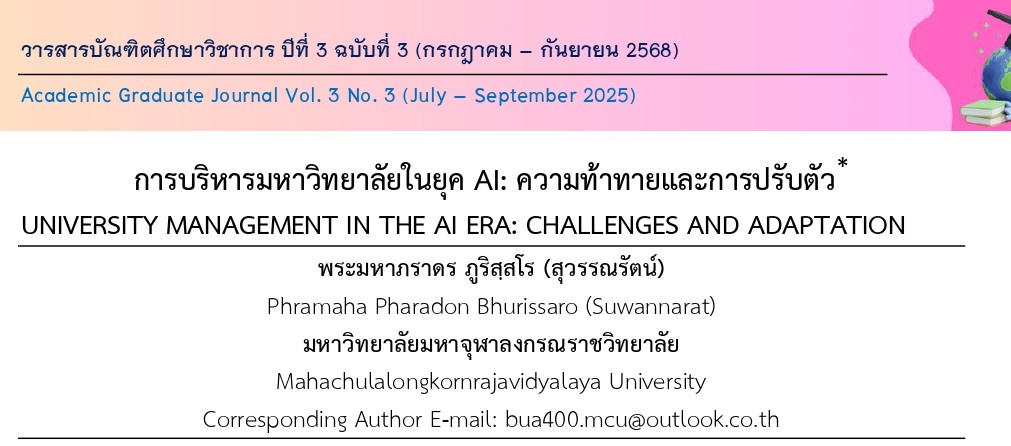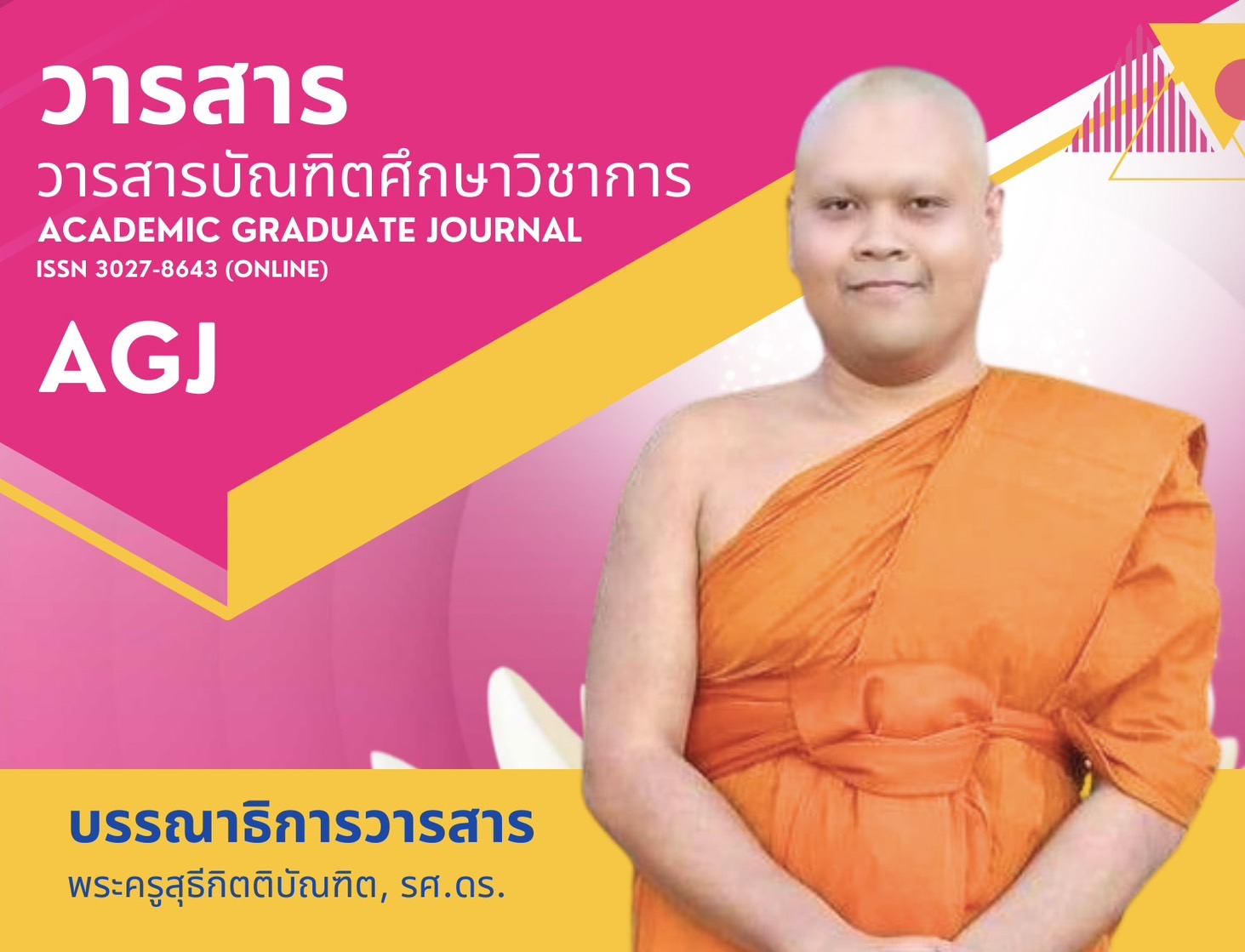UNIVERSITY MANAGEMENT IN THE AI ERA: CHALLENGES AND ADAPTATION
Keywords:
University Management, Artificial Intelligence, Adaptation, Educational DevelopmentAbstract
The rapid advancement of Artificial Intelligence (AI) technology has led universities to face significant changes in managing all dimensions. This article aimed to present the challenges in university management and adaptation approaches in the AI era by analyzing the impacts and changes occurring in various aspects, including education management, administration, and personnel development. The study found that universities face significant challenges in adjusting curricula and teaching methods to meet labor market demands, developing technological infrastructure, managing resources, and developing personnel with essential skills in the digital era. Key adaptation approaches included restructuring organizations for flexibility, implementing AI to enhance operational efficiency, developing data management systems, modernizing curricula, creating blended learning experiences, and establishing cooperation with various sectors. Success in adaptation required clear vision from administrators, participation from all sectors, systematic planning and implementation, as well as continuous monitoring and evaluation. Universities that can effectively adapt and cope with these challenges will be able to maintain their academic leadership and create sustainable value for society in the AI era.
References
กิติพิเชษฐ์ ธูปบูชา และคณะ. (2566). แนวทางการพัฒนาการจัดการทรัพยากรมนุษย์ในยุค AI. วารสารวิจัยมหาวิทยาลัยเวสเทิร์น มนุษยศาสตร์และสังคมศาสตร์, 9(3), 271-284.
ฉัตรพงศ์ ชูแสงนิล. (2562). ปัญญาประดิษฐ์เพื่อการเรียนรู้. สืบค้น 15 มกราคม 2568, จาก https://www.scimath.org/article-technology/item/10110-ai-10110
เทพศักดิ์ บุณยรัตพันธุ์. (2566). การวางแผนเพื่อปรับเปลี่ยนไปสู่องค์กรดิจิทัลกับความท้าทายขององค์กรในยุคดิจิทัล. วารสารด้านการบริหารรัฐกิจและการเมือง, 12(1), 84-104.
นำพล ม่วงอวยพร. (2566). บทบาทของครูในยุค AI. สืบค้น 15 มกราคม 2568, จาก https://www.rcim.in.th.
ยุวเรศมคฐ์ สิทธิชาญบัญชา. (2564). ปัญญาประดิษฐ์ Artificial intelligence (AI) กับการใช้ประโยชน์ทางการแพทย์และเวชศาสตร์ฉุกเฉิน. วารสารการแพทย์ฉุกเฉินแห่งประเทศไทย, 1(1), 91-104.
วิไลรัตน์ ยาทองไชย. (2557). ระบบการสอนเสริมอัจฉริยะ: นวัตกรรมแห่งการเรียนรู้ยุคใหม่. Suranaree J. Soc. Sci, 7 (1), 101-117.
อิทธิศักดิ์ ศรีคำ และคณะ. (2567). บทบาทเทคโนโลยีปัญญาประดิษฐ์ด้านการศึกษาในสถาบันอุดมศึกษา. วารสารการศึกษาและนวัตกรรมการเรียนรู้, 4(1),145-149.
DIA. (2568). AI กับการศึกษา ตัวช่วยสุดอัจฉริยะ เพื่อมิติใหม่แห่งการเรียนรู้ที่ดีกว่า. สืบค้น 15 มกราคม 2568, จาก https://www.dia.co.th/articles/ai-in-education/
Erickson, R. (2018). HR Daily Advisor. Retrieved January 15, 2025, from https://hrdailyadvisor.blr.com/infographic/infographic-insights-highly-mature-talent-acquisition-team/
Humansoft. (2568). บทบาทสำคัญของ AI ที่เข้ามาพลิกโฉม HR กับการบริหารงานบุคคล. สืบค้น 15 มกราคม 2568, จาก https://www.humansoft.co.th/th/blog/ai-personnel-management
Iqbal, F.M. (2018). Can Artificial Intelligence Change the Way in Which Companies Recruit, Train, Develop and Manage Human Resources in Workplace? Asian Journal of Social Sciences and Management Studies, 5(3),102- 104.







